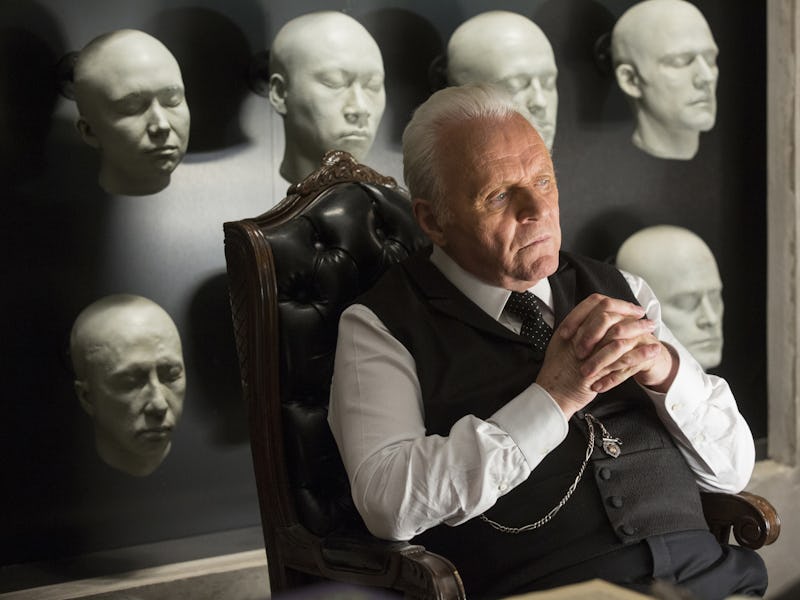Ford's Story Is the Real Maze on 'Westworld'
Ford's story had a surprising ending on the 'Westworld' Season 1 Finale "The Bicameral Mind."

This article contains spoilers for the Westworld Season finale.
In an episode packed with shocking moments — Armistice feeding a lab tech his own finger, Logan’s naked horseback ride — Ford’s narrative reveal in Westworld was the crowning touch of Westworld’s season finale.
Perhaps it was inevitable that an actor of Anthony Hopkins’s stature would not return for another season of a television show. Still, there was always a question of how his death would happen on Westworld. And in “The Bicameral Mind,” we discover that Ford has a surprisingly sentimental streak about his old partner Arnold, and no desire to ever leave the park.
For the first part of “The Bicamerial Mind,” Ford remains on the backburner, as the episode focuses on Dolores, Maeve, and William, aka the Man in Black. He gets a sinister conversation scene with Delos exec Charlotte, and he preens in a suit and bow-tie against a dusty backdrop as he talks to the Man in Black, but the real action doesn’t kick in until the episode’s final stretch.
First, it’s revealed that Dolores’s “off loop” storyline was all part of Ford’s narrative. As Teddy cradles Dolores’s body on a beach, sadly gazing at her still body, he freezes. A spotlight illuminates the couple. The board of directors is revealed to be watching their tragedy play out, clapping politely at the finale.
We think that’s Ford’s long-hyped narrative, but it turns out to be just smoke and mirrors. His true narrative is his own suicide at the hands of his creation. As he gives a speech to the board (he’s quite literal, saying “this will be my final story”) Dolores sneaks up behind him and shoots him in the back of the head — just as she shot Arnold all those years ago.
Earlier in the episode, we learn the true circumstances of Arnold’s death. Arnold implored Dolores to follow the maze, gain sentience, and shoot him as he solemnly quotes Shakespeare. Ah, Westworld.
Years later, Ford does the same thing — encouraging Dolores’s quest for self-realization so she can shoot him. In doing so, he retraces his former friend’s steps in a more complicated way. He has thus drawn a loop of his own — a maze, if you will — on top of Arnold’s original story.
Although the episode dives into the maze too, the real maze here is the way Ford’s story overlaps with Arnold’s. “The Bicameral Mind” solidifies Westworld as the ultimate matryoshka doll of a show.